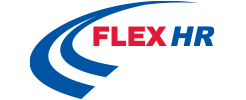The Great Resignation & The Future Of Work:
Dr. John Cascone On How Employers and Employees Are Reworking Work Together
Karen Mangia of Authority Magazine interviewed Flex HR’s very own Senior Vice President, Dr. John Cascone, to get a Human Resources services expert’s explanation of how employers and their employees are reworking together during this Great Resignation.
The Great Resignation continues to impact businesses throughout the country, but when it comes to redesigning a plan for the future of work, this is where things have greatly changed. And maybe for the better? Every organization is different, so there is no one size fits all Employee Handbook anymore that tells the employer how to streamline their business. Whether your workforce is still working remotely, getting into a hybrid groove, or required to be back in the office full time, individuals have gotten used to having their freedom, and now this is an important value that is being pushed.
The Pandemic forced organizations to adjust to working from home over the past couple of years, which will have a lasting impact on the work of the future. The challenge of work/life balance has heightened as a primary priority of the 21st century workforce. “Differentiating the type of work, employee eligibility, work performance and productivity monitoring systems, employer liability issues, communication requirements and systems among others will be the issues and problems facing organization leaders” notes John Cascone.
As work/life balance predominates a company’s goals and purpose, the focus will shift to work outcomes and not processes. HR Leadership must think outside the box to recruit new talent and retain competitive workers.
The best way to adapt to this new way of working is to stay connected to your employees. John Cascone says to “learn their interests and aspirations and, to the extent possible, link organization goals to their work and career interests. Keep an eye on technological developments that could potentially impact business operations and prepare your workforce for proactive rather than reactive engagement with technological change. Arm your manager corps with the interpersonal competencies needed to successfully engage and develop the employees to ensure quality employee retention.”
John Cascone outlines 6 innovative strategies employers can offer their staff to help improve and optimize their mental health and wellbeing:
- Let employees know that the management of stress and employee mental health is important to the employee’s and the organization’s success
- Train managers to diagnose and engage the early warning signs of workplace stress exhibited by the employees reporting to them
- Help manager know what stress-related mental health problems to address and what problems should be referred to mental health professionals
- Recognize and celebrate work well done and where possible showcase exceptional work
- Stress reduction engagement strategies are always helpful including, time away from work, frequent breaks, meditation exercises and EPA assistance
- Above all, keep managers’ stress reduction assistance to employees confidential
The biggest lesson that organizations across the globe have learned through this Pandemic is that society is not immune to the global influences that affect our lives and our company’s operations. Therefore, company values should be reevaluated to comprise of the business’s commitment to maintain vigilance to protect the wellbeing of the organization and its employees.
In Mangia’s interview, John Cascone goes on to summarize the “Top 5 Trends To Track In the Future of Work.” Read the full article: “The Great Resignation & The Future Of Work:
Dr. John Cascone On How Employers and Employees Are Reworking Work Together.”
Contact us now to get the solutions to maximize your HR needs today!

